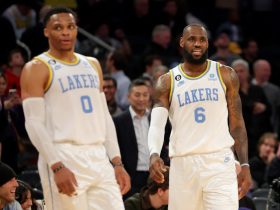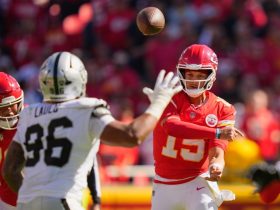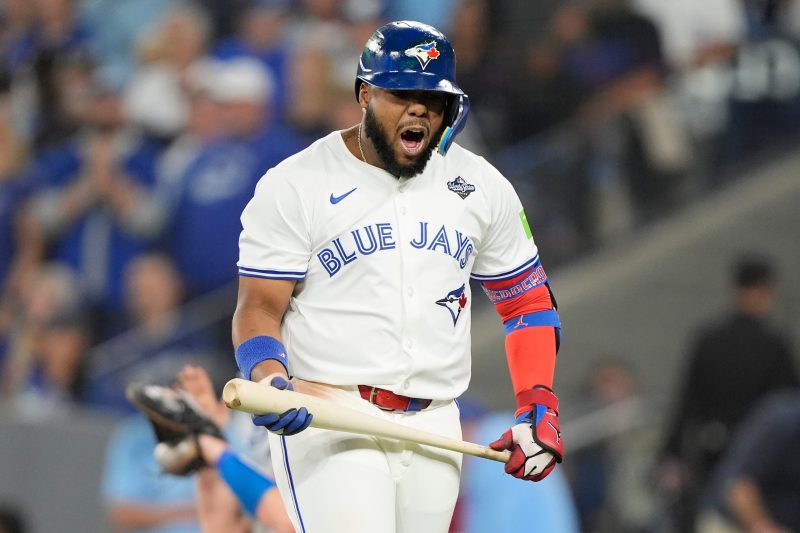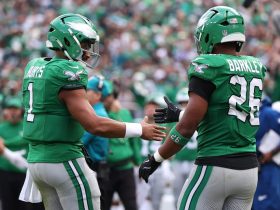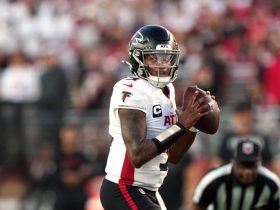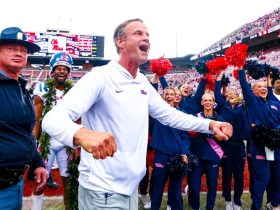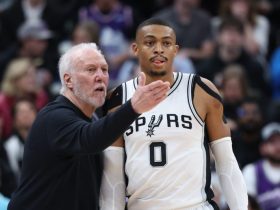TORONTO – It is an undeniable and jarring shift and to survive in this World Series, the Toronto Blue Jays have to pretend that it doesn’t exist.
One evening, the Rogers Centre crowd is roaring, nine runs are crossing the plate in a single inning, the bass in the home clubhouse is rumbling through the lower level of this venerable facility and a fog machine and blue lights frame the giddy afterglow of a World Series Game 1 win.
And 24 hours later, quiet enough to hear the visiting team’s shouts when a ball clears the fence, suitcase zippers engage as bags are packed in the clubhouse and a plane readied for a cross-contintental trip that may end with their season concluding in disappointment.
The Blue Jays are professionals, however.
They are paid very well to compartmentalize – or purport – that Toronto 11, Los Angeles 4 on one night and Los Angeles 5, Toronto 1 the next doesn’t hit any different than a win followed by a loss on an August weekend in Kansas City, say.
“Just don’t put your head down,” says Vladimir Guerrero Jr., the franchise player who briefly interrupted Yoshinobu Yamamoto’s generationally fantastic pitching performance to scorch a base hit 114 mph in Game 2.
“We’re the type of team to never give up.”
Of course, they’re not going to give up with this World Series tied 1-1. The math says either team has an equal chance to win it, though three of the final games are scheduled for Dodger Stadium and Games 6 and 7, maybe, will transpire back here, assuming one team doesn’t sweep all three in L.A.
But reality suggests the Blue Jays will have a very challenging road ahead.
Let’s work backward: Should this Series reach a Game 6, Yamamoto will again be waiting for them, perhaps with a chance to clinch the series.
Yes, the same Yamamoto who just pitched consecutive complete games in the postseason for the first time since 2001, as if this game were broadcast in Super 8 and not HD.
Who retired the final 20 batters in a very good Blue Jays lineup and has willed the Dodgers to seven wins in his eight starts over two postseasons.
Game 5 will likely feature a Game 1 rematch, rookie Trey Yesavage against Dodgers lefty Blake Snell, who can go to school on what went awry in Game 1 to get deeper the next time out and avoid a conga line of Blue Jays throwing a basepaths party against the Dodgers bullpen.
Now, to the lid-lifters in L.A.: Max Scherzer and Shane Bieber vs. Tyler Glasnow and a global icon named Shohei Ohtani. Experience and guile vs. pure stuff and transcendent two-way talent.
Advantage, Dodgers?
Probably. We’re contractually obligated to note that anything can happen, that Scherzer, at 41, could discover the competitive furnace that willed him past a Seattle Mariners lineup far inferior to these Dodgers in Game 4 of the ALCS. That his body won’t betray him like it did in his last World Series start, 2023 Game 3 for the Texas Rangers.
And that Bieber will more closely resemble the guy who hung six strong innings on Seattle to turn the course of that ALCS around. And not the one who couldn’t complete four innings of a decisive Game 7, the Blue Jays rescued by an inspiring all-hands relief relay.
Come World Series time, the Blue Jays made an adjustment: Mad Max in Game 3, leaving him available for a Game 7, which would be his second such assignment in six years. Bieber, after all, is barely 18 months removed from Tommy John surgery.
It’s an awful lot of what-ifs and let’s-do-this as opposed to the Dodgers saying, “We’re gonna toss the 6-8, oft-overpowering Glasnow and Ohtani’s 100-mph fastball out there. Good luck.”
It’s all a rather jarring turn in the forecast given that in the top of the seventh inning of Game 2, the Blue Jays were locked in a 1-1 tie, getting deliciously close to getting the Dodgers’ rancid bullpen back into the equation.
Yet Yamamoto forced Blue Jays ace Kevin Gausman to be perfect. He practically was, save for two pitches to Dodgers catcher Will Smith that the taciturn Kentuckian cashed into a first-inning RBI single and a go-ahead seventh-inning home run.
A really tough beat, considering Gausman nearly matched Yamamoto – suddenly a generationally great postseason pitcher – throw for throw.
“We were pretty quick, back and forth,” says Gausman of how he and Yamamoto needed 14 or fewer pitches each time up from the second through the sixth inning. “We didn’t really give ourselves much of a break, either guy. Just kind of constantly back and forth. In a pitcher’s duel, that’s kind of what it feels like. You know it, but you’re trying to do your own job.
“Obviously, I wish we had a nine-run inning like yesterday. But that’s just the reality of good pitching.”
Which tends to beat good hitting. That said, the contact-oriented, power-packed Blue Jays aren’t your typical lineup. It’s true that they typically cannot be held down for long, that good things really do happen when you put the ball in play.
Which makes their get-‘em-next-time narrative in the post-Game 2 aftermath not sound like so much cope.
“The main thing is understanding the other team on the other side is there because of who they are,” says leadoff man George Springer, who received split decisions in his two seven-game World Series runs with the Houston Astros. “And again, for us it’s about understanding it’s not just going to be easy.
“I think every team that gets to this point understands that.”
And they also understand that what’s on paper may only matter so much. The Blue Jays, after 175 regular season and playoff games, are a special team, a very talented team and often – see Game 1 – a very potent one.
It’s just that changes in the weather – such a zero percent chance of a postgame clubhouse smoke machine – can flip the World Series narrative so quickly.
On to California.
“This time of year, obviously every pitch matters so much more,” says closer Jeff Hoffman, who made his World Series debut in the ninth inning.
“We’ve been doing a really good job sticking to our game plan and submerging into that and not letting the outside noise affect us.”
Come Monday, that outside noise will be very loud, Dodger Stadium Game 3, with a chance to defy the odds that turned against them quicker than a Yamamoto fastball.


